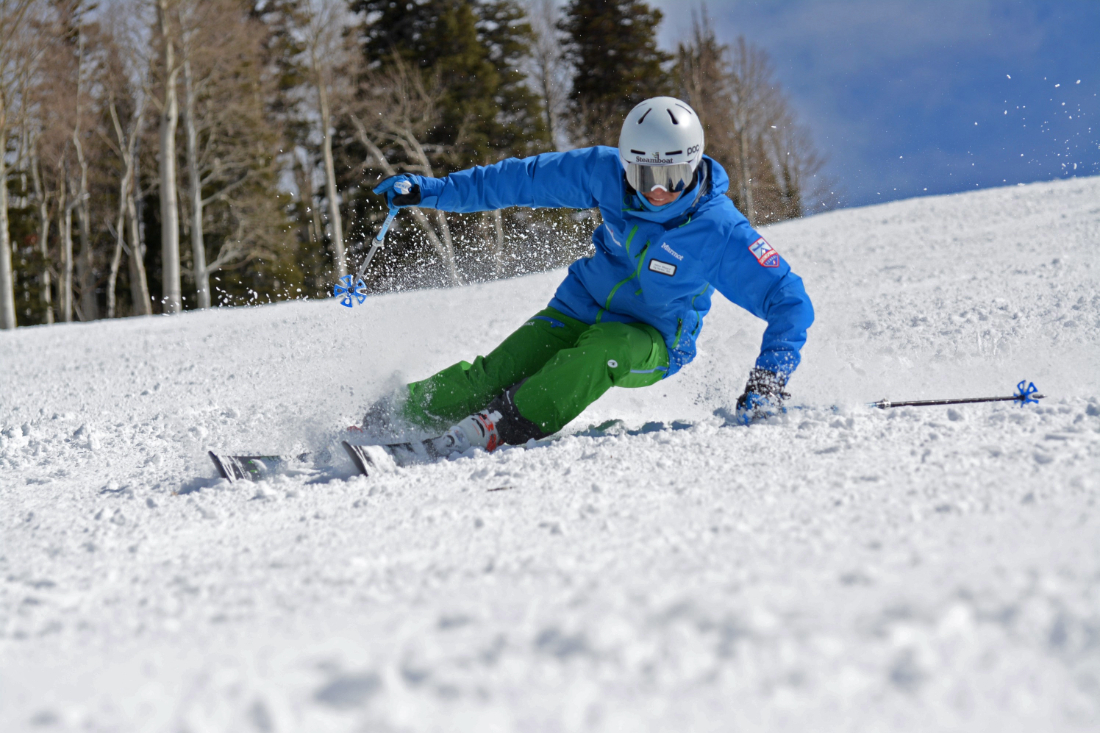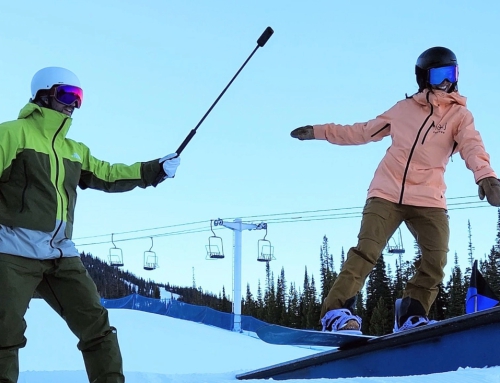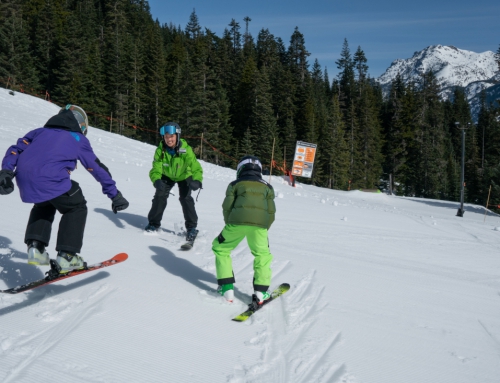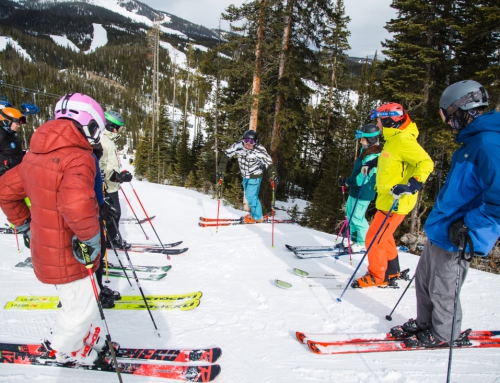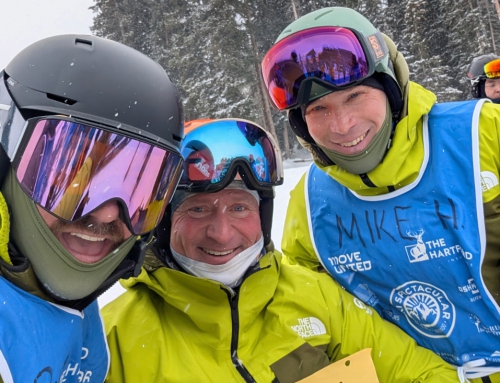New Steamboat SnowSports School VP Nelson Wingard on the Value of Teaching Skills
In preparation for the 2024-25 winter season, Steamboat Ski Resort recently announced two new vice presidents to round out the senior leadership team at the world-class mountain destination. Corey Peterson assumes the role of vice president of mountain operations and former PSIA Alpine Team member Nelson Wingard takes the new position of vice president of SnowSports School.
“Steamboat is known for a few things: Champagne Powder® snow, Olympians, being the friendliest mountain destination, and cultivating the best leaders in the industry,” said Dave Hunter, president and COO of Steamboat Ski Resort, in announcing the promotions. “Any opportunity we have to promote incredible team members and retain individuals who share our vision of staying true to Steamboat’s roots while planning for the future, is a win. Nelson has a proven track record of incredible success at the resort, making the Steamboat SnowSports School an industry leader, and I know he’ll bring the same passion to his new role in helping the resort align on future direction.”
Wingard has been involved in the ski industry for nearly 40 years with almost 20 seasons dedicated to the SnowSports School at Steamboat Ski Resort. In the newly created role of VP of SnowSports School, he’ll be responsible for the oversight of the SnowSports School, including Mountain Camp and Steamboat’s bike park operations and bike school.
Nelson started as director of SnowSports School ahead of the 2005-06 season. During his tenure, the SnowSports School has grown in staff, revenue, and innovative products. Wingard was an integral part of developing and executing Greenhorn Ranch, the resort’s new, on-mountain dedicated beginners’ area, which opened in 2022. A leader in the ski industry, Wingard has been a member of the Professional Ski Instructors of America (PSIA) since 1989. In the Northwest, he served on the technical team and as the children’s committee chairman. In 2004, he earned a spot on the National Alpine Demonstration Team and currently serves as an examiner for the Rocky Mountain Division.
PSIA-AASI sat down with Wingard to discuss his new role, and how his experience as an instructor applies to all aspects of his professional career.
Q: Please describe your new role as director of the SnowSports School and how it will benefit both Steamboat students and instructors?
A: First, you should know that I was hired for a role that didn’t exist. I applied for vice president of operations and was hired/promoted into this role. A big reason for that was adding the perspective of an educator, an employer of seasonal workers, and an understanding of a very core guest to the resort. So many pros have life-altering events with their guests. The more we can create those connections to other people and connections to the land in winter and in summer, the more we can promote activity in this space, and in the long run I think the healthier our country will be.
Q: What are some key skills you’ve developed as an instructor that you can apply to this new role?
A: The most important skill I’ve learned in teaching is how to listen and tailor communication to best create understanding. For opportunity for the school it’s in teaching customer service skills, communication skills, and of course the most important is education. This is so much more than data preparation and presentation. I was an apprentice instructor at 17 and the skills I learned helped me through college and gave me insight into the theories in the world. For example, there was no manual on how to deal with a pandemic. You had to work through the data, recognize the new reality, and move forward. It’s how you accept that change is happening and continue to work toward your goals that I think is one of the most important aspects of being a good instructor.
Q: How do you see your teaching skills informing your life when you aren’t on snow?
A: Well, at times, it’s bad. For example, did you know that in golf unsolicited advice is a two-stroke penalty? While you might have an opinion on what would make something better, it’s not always welcome. Sometimes you should just encourage and not correct. But on the whole, being a teacher creates a very deep level of empathy as you constantly ask why a person thinks or acts in a certain way at a deeper level.
Q: How did your time as a PSIA-AASI National Team member enhance how you teach and ski?
A: The time on the national team was priceless. It gave me a deep, deep insight into the extremely diverse motivation and goals of the guest, pros, and resorts across our nation.
Q: Key goals for this new role that you would like to share?
A: Maintain a strong connection to staff and training. Connect our school to key initiatives. Get more people skiing and snowboarding.

